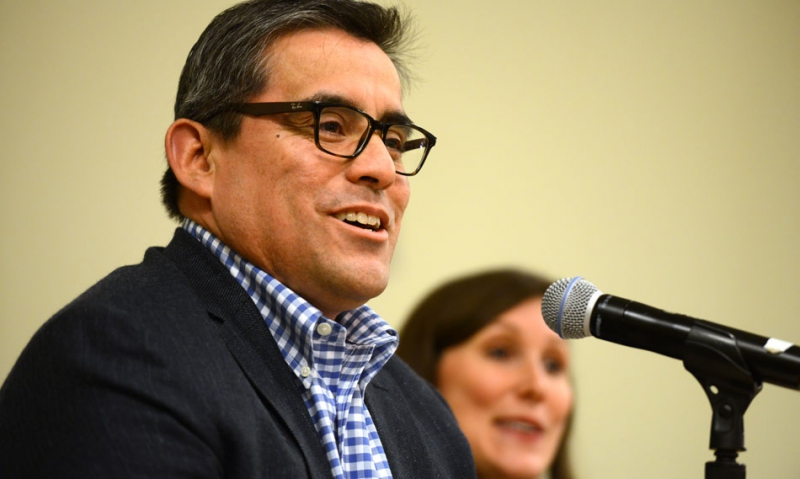
Presenters also tout success for military community.
Unemployment and underemployment. Age discrimination. Trying to find the means to build their own small business. All career-related issues veterans face.
Presenters addressed those issues and others during Monday’s American Legion Veterans Employment and Education Commission meeting at the organization's annual Washington Conference.
Even with a low unemployment rate, there are approximately 350,000 unemployed veterans in the U.S., said Tim Green, director of the Office of Strategic Outreach in the Department of Labor’s Veterans Employment and Training Service.
“And 55 percent of those that are unemployed are over 45,” Green said. “We talk a lot about transition assistance; that’s not really where your major numbers are for unemployed veterans. They’re really in the older populations.”
And those older veterans often face difficulty in finding careers because of their age, said Susan Weinstock, vice president of Financial Resilience for AARP.
“In hiring, it’s practically impossible to know if it’s age discrimination,” said Weinstock, who added that the AARP is supporting the Protecting Older Workers Against Age Discrimination Act to counteract a Supreme Court decision that makes it more difficult to prove age discrimination in hiring.
She also pointed out social media ads geared toward younger potential hires and job ads asking for “digital natives,” i.e., those who have grown up with computers.
Older veterans who own their own business also must contend with how to pass those businesses on, especially when they are reliant on contracts tied to requirements for veteran-owned businesses.
The U.S. Veteran Business Alliance is trying to create a program that would help veterans pass their businesses along to younger veteran entrepreneurs.
“This is a relevant need in our community right now,” said Erica Courtney, a board member of U.S. Veteran Business Alliance.
“If you can give a veteran a livelihood and give them purpose through entrepreneurship, it helps alleviate a ton of the other issues that they’re facing,” Courtney said.
Many veterans are working three or four jobs to make ends meet, said Elizabeth Murray-Belcaster, consultant with the International Brotherhood of Teamsters.
“(Underemployment) is our issue today,” she said. “We have to do better at making sure (veterans) have careers (and not just jobs).”
Still, there’s promise. David Wallace, military relations project manager for Lockheed Martin, said 37 percent of the company’s external hires last year were veterans.
Wallace was part of a corporate career panel which included Thomas Dawkins, workforce development and education director for Microsoft; Ralph Hernandez, military senior program leader at Amazon; and Vivian Greentree, senior vice president at First Data.
Dawkins said the Microsoft Software and Systems Academy is “a steppingstone” for veterans and servicemembers to get into the industry, and not just at Microsoft, with a 96 percent graduation rate and 94 percent finding employment within 60 days of graduation.
Hernandez pointed out that Amazon ensures that veterans and military spouses they hire have networking and community resources available to them.
“We’ve found that military community members have a need to keep serving,” he said.
Greentree said First Data has been very active in helping veteran and military spouse entrepreneurs.
“We know about 25 percent of servicemembers transitioning out are interested in entrepreneurship, and given that’s what we do every day, we have pledged considerable resources behind helping veterans and military spouses start and grow their businesses,” Greentree said.
- Washington Conference

